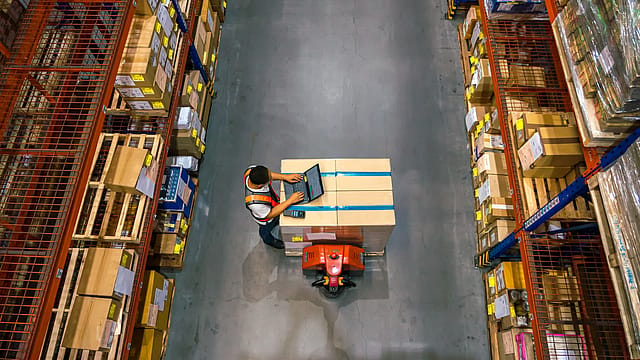Cabinet approves National Logistics Policy
ADVERTISEMENT

The union cabinet, chaired by Prime Minister Narendra Modi, has approved the National Logistics Policy, which aims to reduce the cost of logistics in India and make it comparable to global benchmarks by 2030.
The new policy also aims to improve India's Logistics Performance Index ranking, to be among the top 25 countries by 2030, and create data driven decision support mechanism for an efficient logistics ecosystem.
The vision is to develop a technologically enabled, integrated, cost-efficient, resilient, sustainable and trusted logistics ecosystem for accelerated and inclusive growth, the government says in a press statement.
To monitor the implementation of the policy and integrate efforts across stakeholders, the policy will utilise the existing institutional framework i.e., Empowered Group of Secretaries (EGoS) created under the PM GatiShakti NMP.
This policy paves way for reduction in logistics cost in the country, the government says, adding that focus will be on enabling adequate development of warehouses with optimal spatial planning, promotion of standards, digitisation and automation across the logistics value chain and better track and trace mechanisms.
Further measures to facilitate seamless coordination between different stakeholders and speedy issue resolution, streamlined EXIM processes, human resource development to create an employable pool of skilled manpower, are also laid out in the policy.
The policy also lays down an action agenda for immediate on ground implementation of various initiatives. In fact, to ensure that the benefits of this policy have maximum possible outreach, important initiatives under the policy including the Unified Logistics Interface Platform (ULIP), the Ease of Logistics Services platform, e-handbook on Warehousing, training courses on PM GatiShakti and logistics on i-Got platform, were launched along with the launch of the National Logistics Policy.
While PM GatiShakti National Master Plan is aimed at integrated infrastructure development, the National Logistics Policy is envisaged to bring efficiency in logistics services, and human resources through streamlining processes, regulatory framework, skill development, mainstreaming logistics in higher education and adoption of suitable technologies.
All states and union territories (UTs) have been fully onboarded. 14 states have already developed their respective State Logistics Policies on the lines of the National Logistics Policy and for 13 states, it is in draft stage.
The policy supports enhancing competitiveness of micro, small and medium enterprises, and other sectors such as agriculture and allied sectors, fast moving consumer goods and electronics. With greater predictability, transparency and reliability, wastages in supply chain and need for huge inventory will reduce, the government says.
It also envisages greater integration of global value chains and higher share in global trade besides facilitating accelerated economic growth in the country.